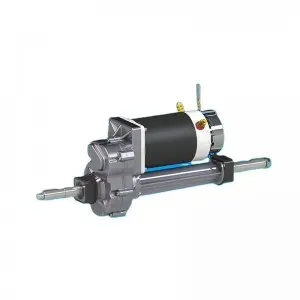When it comes to maintaining the health and performance of our vehicles, we often tend to focus on the visible aspects, such as engine oil, tires, and brakes. However, there is another critical component that plays an important role in the functioning of our vehicles – the transaxle. In this blog, we aim to answer a common question many car owners have: Does the transaxle fluid smell when it’s hot? Join us as we take a deep dive into the world of the transaxle and explore its importance, the properties of its fluid and whether it produces any distinctive odors.
Understanding the transaxle
To understand the role of a transaxle, we must first understand their purpose in a vehicle. The transaxle is an important component that combines the functions of the transmission, differential and axle in one unit. It is responsible for transmitting power from the engine to the wheels. Like any mechanical system, the transaxle requires lubrication to ensure its smooth operation and prevent excessive wear.
Transaxle Fluid: The Unsung Hero
Transaxle oil, commonly known as gear oil, plays a vital role in the overall performance of the transaxle. It serves a dual purpose: reducing friction between moving parts and dissipating the heat generated during operation. Just like any other fluid in your vehicle, transaxle fluid can deteriorate over time due to exposure to heat, moisture, and contaminants. Regular maintenance, including fluid checks and changes, is critical to keeping your transaxle running smoothly.
Does transaxle oil smell when it’s hot?
An odor coming from the transaxle fluid may indicate a potential problem with the transaxle itself. It’s important to remember that fresh transaxle fluid usually has a mild petroleum smell. However, if you notice that your transaxle emits a pungent burning smell similar to rotten eggs when it gets hot, that could indicate a serious problem. This smell is often associated with overheating, which can be caused by low fluid levels, contaminated fluid, or a faulty transaxle. Consulting a professional mechanic is critical to promptly diagnosing and resolving the root cause.
Signs of Transaxle Fluid Problems
While an odor is a strong indicator of a potential transaxle problem, other signs may accompany it. Watch for fluid leaks underneath the vehicle, excessive noise when shifting, slipping gears, or significant loss of performance. These symptoms may indicate fluid degradation, which can lead to increased friction, heat buildup, or even complete transaxle failure.
Ensuring the health of your transaxle is critical to maintaining a smooth and reliable driving experience. Understanding the potential signs and odors associated with transaxle fluid when hot can help you detect problems early and prevent costly repairs later. Remember to refer to your vehicle manufacturer’s guidelines for proper oil change intervals, and always consult a professional mechanic for accurate diagnosis and repairs. By taking these proactive steps, you can enjoy the aroma of a properly functioning transaxle that keeps you and your vehicle on the right track.
Post time: Nov-06-2023


